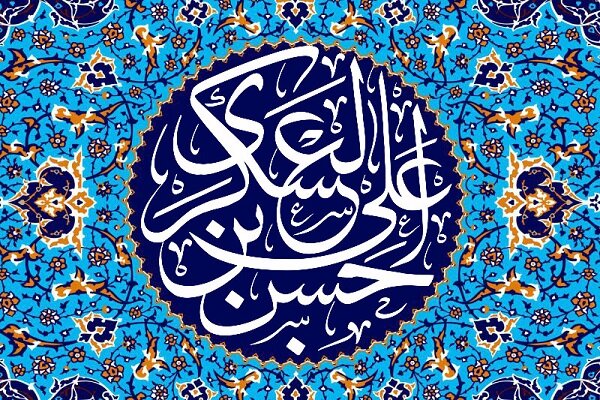
Imam Hasan al-Askari (AS) was born in Madina, on the 8th day of the month of Rabi’ Thani, in the year 232 A.H.
Imam’s name is al-Hasan, being a resident of ‘Asgar a suburb of Samarra’, he is titled al-Askari. His father was Imam ‘Ali An-Naqi (AS) and his mother was Salil Khatun, an ideal woman in piety, worship, chastity, and generosity.
Imam Hasan al-Askari lived under the care of his respected father up to the age of 11. When his father had to leave for Samarra’ he was to accompany him and thus share the hardships of the journey with the family.
At Samarra’, he passed his time with his father either in imprisonment or in partial freedom. He had, however, the chance to benefit from his father’s teaching and instruction.
Imam’s father was martyred when Imam was twenty-two. Four months before his death, the father declared his son to be his successor and executor of his will, asking his followers to bear witness to the fact. Thus the responsibilities of Imamate were vested upon him which he fulfilled even in the face of great difficulties and the hostile environment.
Imam Hasan al-Askari (AS) had a brief span of life, only twenty-eight years, but even in this short period, which was furled by a chain of troubles and tribulations, several high-ranking scholars benefited from his ocean of knowledge.
Imam Hasan al-Askari (AS) was peerless in knowledge, forbearance, forgiveness, generosity, sacrifice, and piety.
According to the Wikishia, in hadith studies, one of the titles mentioned for Imam al-Hasan al-Askari (AS) is “faqih”, with which he (AS) was especially known to his companions.
Some of his hadiths are about jurisprudence and its different branches. Since the organization of religion regarding jurisprudence was made previously at the time of Imam al-Sadiq (AS) and was then developed toward its perfection, Imam al-Hasan al-Askari (AS) mostly discussed secondary issues that came up or were for some reason critical at his time such as the beginning of the month of Ramadan and the discussions about Khums.
Even though Imam al-Askari (AS) was very young, he (AS) was very famous due to his scientific and moral position, his leadership of Shi’a, their sincere following of him, and his unquestioned respect for people. Also, since people knew him and paid attention to him, except for a few cases, the Abbasid government showed respect to him in appearance.
Interpreting the Qur’an was among the activities Imam al-Hasan al-Askari (AS) cared about so much that an extensive text on the interpretation of the Qur’an (among the oldest exegetical heritage of Shi’a) is attributed to him. Even if this attribution is not correct, it should be noted that Imam’s (AS) emphasis on exegetical discussions made the grounds for this attribution.
According to complexities and ambiguities about the new Imam (AS) at that time, it can be seen in the speeches and letters of Imam al-Askari (AS) that he mentioned, the earth would not be void of God’s Proof and that if Imamate is cut, there will be problems in the affairs of God on earth.
He (AS) also said that God’s Proof on earth is a blessing God has granted to the believers and has honored them with this guidance.
Another teaching, repeatedly seen in the speeches of Imam (AS) due to the pressures on Shi’a, is calling them to patience and believing in relief and waiting for it.
Also, in his hadiths, there is a special emphasis on respecting the internal relations of Shi’a society and associating with religious brothers.
Imam al-Askari (AS), like his forefathers, practiced his cultural and scholarly role within the course of the school of Ahlul-Bait (AS) – which concentrated its activity on the Quran and prophetic traditions, safeguarding the originality of the message and discovering its contents.
Imam Hasan al-Askari (PBUH) was poisoned by the caliph, Mu’tamad, and, thus, suffered severely and was martyred on the 8th of the month of Rabi’ Awwal in the year 260 (A.H.). At the time of his death, he was twenty-eight years old. He was buried in the house in which his father was buried in Samarra. He left behind his son – the Living Holy Awaited Savior Imam Muhammad al-Mahdi (PBUH) the one who is awaited to bring about the heavenly rule of truth in the whole world.
Reported by Amin Mohammadzadegan Khoyi